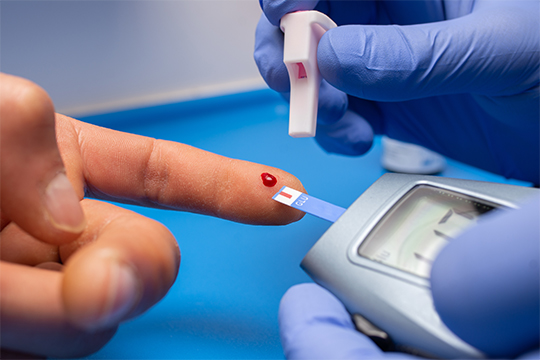Home > Disease and Treatments > Emergency Room Reality: Where every Second Matters!
Emergency Room Reality: Where every Second Matters!
The Emergency Department (ED) is a vital part of any hospital, operating 24/7 to provide immediate care for patients in critical conditions. It serves as the first point of contact for individuals experiencing medical emergencies that require urgent attention. With the support of experienced physicians, trained emergency care teams, and state-of-the-art medical equipment, the ED is often a life-saving hub. At Royal Care Hospital, our emergency team is always ready to respond to critical situations with the latest medical technology and expert care.
Why the Emergency Department Matters
The Emergency Department is staffed by skilled Emergency Physicians and nurses who are specifically trained to deliver prompt and efficient care. From stabilizing life-threatening conditions to ensuring timely interventions, the ED works seamlessly to save lives. A critical component of emergency care is triage—a system used to prioritize patients based on the severity of their conditions. This ensures that those needing immediate attention, such as patients experiencing cardiac arrest or trauma, receive care without delay.
Facilities and Expertise
A well-equipped ED is essential for providing high-quality care. Modern Emergency Departments feature:
- Advanced monitoring systems
- Point-of-care diagnostics
- Essential medications
- Close collaboration with radiology, laboratory, and blood bank services
Accreditations from national and international bodies like NABH and JCI further guarantee the quality of care delivered.
Key Medical Emergencies Handled
The ED addresses a wide range of medical and surgical emergencies, including:
- Cardiac Arrest: Advanced Cardiac Life Support (ACLS) and resuscitation techniques are used to stabilize patients.
- Myocardial Infarction (Heart Attack): Patients are prioritized for immediate treatment, including oxygen administration, ECG, and advanced interventions like thrombolysis or angioplasty.
- Trauma: Multiple injuries from accidents or falls are managed by trained trauma teams.
- Stroke: Time-critical care ensures early diagnosis and treatment to reduce long-term damage.
- Other Emergencies: Conditions like respiratory failure, poisonings, diabetic complications, and acute abdominal pain are addressed promptly.
Specialized care is also extended to children, pregnant women, and elderly patients, ensuring inclusivity and comprehensive treatment.
Specialized Equipment and Training
Emergency Departments require unique equipment and approaches tailored for rapid response. From CT scanners and ultrasound machines to specialized ambulances, every aspect is designed for efficiency. ED staff undergo rigorous training to handle emergencies, including natural disasters and large-scale accidents.
Pre-Hospital and Disaster Care
The ED extends its role beyond hospital walls by offering pre-hospital care through advanced life support ambulances staffed by Emergency Medical Technicians. During disasters such as earthquakes, floods, or fires, the ED becomes a pivotal center for urgent medical care and coordination.
Your Safety, Our Priority
At Royal Care Hospital, our Emergency Department is equipped with cutting-edge technology and managed by a team of dedicated professionals committed to delivering world-class care. Whether it’s a medical, surgical, or mental health emergency, you can trust us to provide immediate, compassionate, and expert care.
In an emergency, every second counts. Choose Royal Care Hospital for trusted, round-the-clock care—because your health is our priority.





